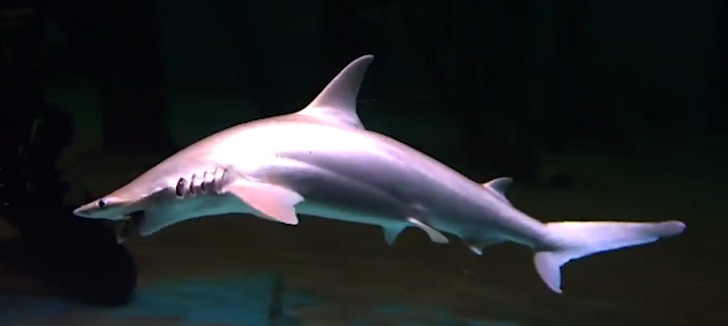Learn about sharks in bite-sized pieces in new MOOC
By Bill Steele

One of the most misunderstood animals on Earth will be the subject of a new Cornell University and University of Queensland Massive Open Online Course (MOOC). Sharks! Global Biodiversity, Biology and Conservation will launch June 28 on the edX platform, timed to coincide with the Discovery Channel’s annual Shark Week.
The course, which is now open for registration, offers advanced study of the anatomy and physiology of the predators, their evolution, their place in the underwater ecology, the impact of human interactions on shark populations, and the importance of conservation. Students will track movements of a wild shark, observe shark habitats and behavior, and dig deep into the fossil record.
“An explosion of new research and technologies such as satellite tagging and CT scanning are helping researchers advance our knowledge of sharks at an unprecedented rate,” said William Bemis, professor of ecology and evolutionary biology and former director of Shoals Marine Laboratory. “The technology has been integrated so much that you can now follow some sharks on Twitter."
Shark scientists study everything from anatomy to DNA to understand evolutionary relationships. Thanks to new technologies, Bemis added, “We now have a good understanding of the evolutionary history of the nearly 1,200 living species of sharks and other cartilaginous fishes such as rays and ratfishes, and their extraordinary sensory systems, including a sense that we humans don’t have: electroreception.”
“Working in partnership with Cornell University professors, we present the latest in shark science to educate on what is largely a misunderstood or misrepresented species,” said Ian Tibbets, associate professor of biology at the University of Queensland, who joins five Cornell scientists in teaching the class.
“Given the recent spate of shark sightings and news reporting in Australia, you’d be forgiven for thinking that shark populations are on the increase, but in actual fact some shark populations are declining and likely destined for extinction,” Tibbets said.
Topics covered in the course include:
- habitats and distributions of sharks from around the world;
evolutionary history and relationships of sharks and allies;
functional anatomy of swimming, breathing and eating;
aspects of sensory biology, reproduction and behavior;
ecological roles of sharks; - historical and cultural aspects of shark-human interactions;
the impacts of human behavior on shark populations; and
how biology can inform conservation efforts.
Enrollment in the course is free. It does not confer college credit, but those who complete the course may obtain a certificate of completion to add to their resume.
Media Contact
Get Cornell news delivered right to your inbox.
Subscribe